In the fast-paced world of business, staying ahead of the competition demands innovation and efficiency. As artificial intelligence continues to revolutionize the way we work, savvy entrepreneurs are embracing AI tools to streamline their operations and unlock new levels of productivity.
Tool | Primary Use | Key Features |
Jasper | AI Content Creation | • Unlimited word generation
• Brand voice styling • Surfer SEO integration |
Writesonic | AI Writing Assistant | • Over 80 AI writing tools
• Content generation • Plagiarism checker |
Scalenut | AI Writing Workflow | • Live internet data
• SERP comparison and optimization • Cruise Mode automation |
HubSpot AI | Email Writer | • Personalized email content
• Subject line suggestions • Email template customization |
Table of Contents
Introduction: Harnessing the Power of AI for Business Success

In today’s fast-paced world, staying ahead of the competition is crucial for business success. The artificial intelligence (AI) market is growing rapidly, with businesses of all sizes leveraging this powerful technology to streamline operations, enhance customer experiences, and drive innovation.
From AI-powered chatbots that provide 24/7 customer support to AI writing assistants that generate high-quality content, the applications of AI in the business world are vast and diverse.
What are AI Tools and How Can They Benefit Your Business?

Explanation of AI tools and their applications in business
AI tools are software applications that leverage artificial intelligence techniques, such as machine learning, natural language processing, and computer vision, to perform various tasks. These tools can automate repetitive processes, analyze large datasets, generate insights, and enhance decision-making capabilities.
Businesses across various industries are increasingly adopting AI tools to:
Improve customer service and support through AI-powered chatbots and virtual assistants.
Generate high-quality content, such as blog posts, articles, and marketing materials, with AI writing assistants.
Create visually appealing images, videos, and graphics for branding and marketing purposes with AI image and video generators.
Streamline software development processes and improve code quality with AI coding assistants.
Analyze customer data and behavior to personalize marketing campaigns and increase sales.
Key benefits of using AI tools (efficiency, cost savings, insights, etc.)
Incorporating AI tools into your business operations can offer numerous benefits, including:
Increased efficiency: AI tools can automate tedious and time-consuming tasks, allowing employees to focus on more strategic and creative endeavors.
Cost savings: By automating processes and reducing manual labor, businesses can achieve significant cost savings in the long run.
Improved decision-making: AI tools can analyze vast amounts of data and provide actionable insights, enabling businesses to make data-driven decisions.
Enhanced customer experiences: AI-powered chatbots, virtual assistants, and personalized marketing campaigns can improve customer satisfaction and loyalty.
Competitive advantage: By leveraging AI tools, businesses can gain a competitive edge in their respective industries, leading to increased profitability and growth.
Top AI Tools for Business Productivity

In today’s fast-paced business environment, productivity is key to success. AI tools can help businesses streamline their workflows, automate repetitive tasks, and optimize their processes for maximum efficiency.
Jasper – AI-powered writing assistant
Key features and use cases:
AI-powered content generation for blogs, articles, marketing materials, and more.
Ability to create in over 25 languages and customize the tone and style.
Integration with SEO tools like Surfer SEO for optimized content creation.
AI image generation capabilities with Jasper Art.
Jasper Chat, a powerful chatbot alternative to ChatGPT.
Grammarly – Advanced grammar and writing enhancement tool
Key features and benefits for professional writing:
Real-time grammar, spelling, and punctuation checks.
Style and tone suggestions to cater to different writing styles.
Plagiarism detection to ensure content originality.
GrammarlyGO feature for AI-assisted content generation.
Integrations with popular writing tools and platforms.
Notion AI – Intelligent workspace for team collaboration
How Notion AI streamlines project management and communication:
Q&A feature for quick access to information and insights.
Autofill capabilities to save time when creating content.
AI-powered writing assistance for generating and enhancing content.
Seamless integration with Notion’s organizational tools for improved collaboration.
Ability to format content, add headings, and more using AI prompts.
By leveraging these AI tools, businesses can streamline their content creation processes, improve writing quality, and enhance team collaboration, ultimately boosting productivity and efficiency.
Best AI Tools for Marketing and Sales
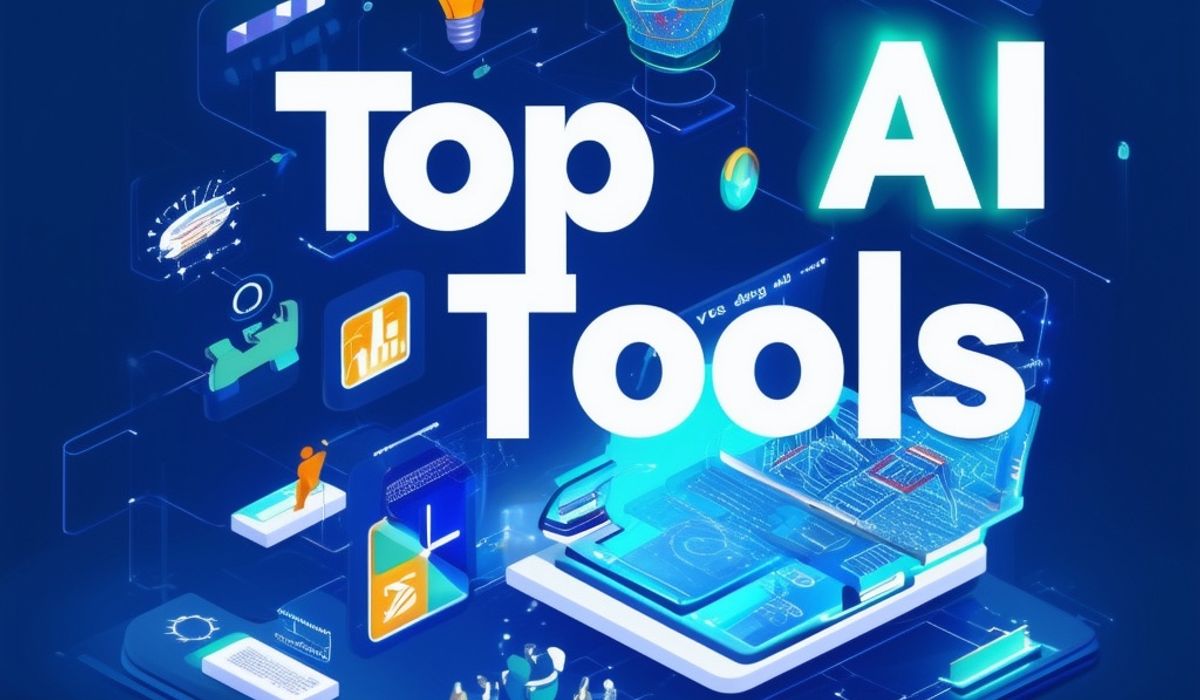
In the competitive world of marketing and sales, businesses are constantly seeking ways to optimize their strategies and increase conversions. AI tools have emerged as game-changers in this domain, offering powerful solutions to enhance customer engagement, personalize experiences, and drive sales growth.
HubSpot – All-in-one CRM platform with AI capabilities
Leveraging HubSpot’s AI for marketing automation and sales optimization:
AI-powered content creation tools, including blog post ideas, social media posts, and email copy.
Predictive lead scoring to identify high-potential prospects.
Chatbots and conversational AI for website visitors and customer support.
Personalized marketing campaigns based on customer data and behavior.
Integration with other AI tools like Copy.ai and Anyword for enhanced copywriting capabilities.
Salesforce Einstein – AI-powered insights for sales teams
How Einstein helps with lead scoring, forecasting, and personalization:
Predictive lead scoring to prioritize high-value leads.
Opportunity insights and forecasting for better pipeline management.
Personalized product recommendations based on customer data.
Automated data capture and analysis for sales intelligence.
Integration with Salesforce’s CRM platform for seamless workflow.
Drift – Conversational AI for customer engagement
Using Drift’s AI chatbots for lead generation and customer support:
AI-powered chatbots for 24/7 website visitor engagement.
Intelligent lead qualification and routing to sales teams.
Personalized chat experiences based on visitor behavior and data.
Integration with CRM and marketing automation platforms.
Real-time language translation for global customer support.
By harnessing the power of AI in marketing and sales, businesses can gain a competitive edge, enhance customer experiences, and drive revenue growth through data-driven insights, personalization, and automation.
Top AI Tools for Customer Service
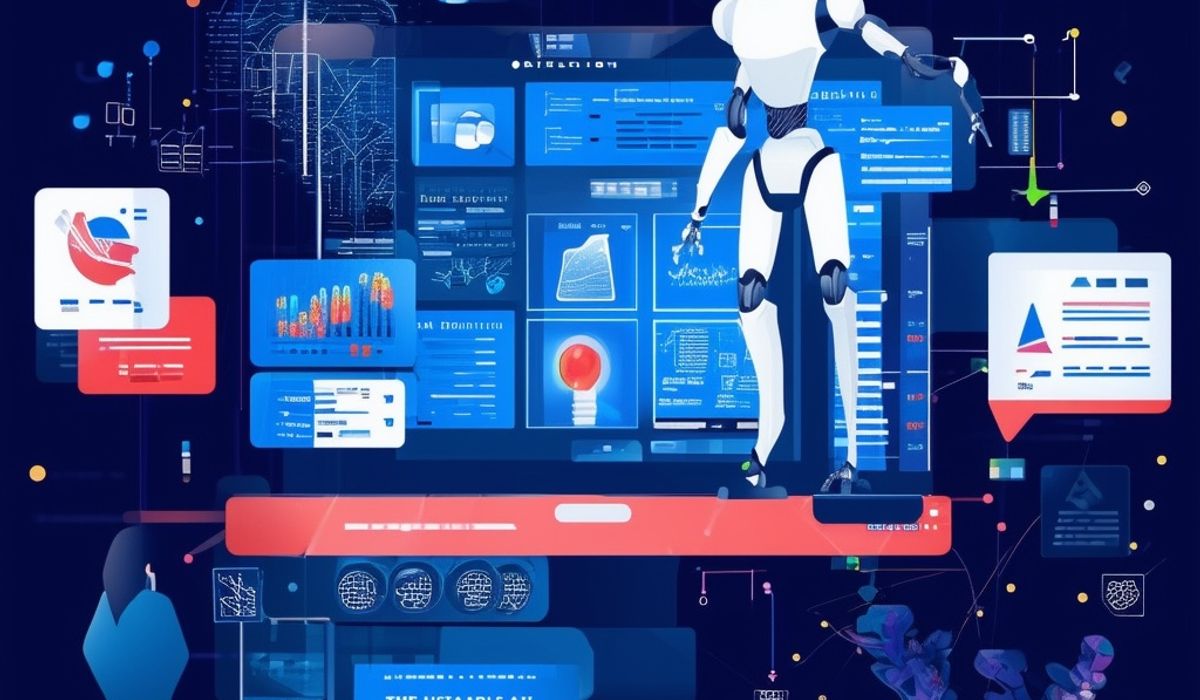
In today’s fast-paced world, providing exceptional customer service is paramount for business success. AI tools have revolutionized the customer service landscape, enabling businesses to offer efficient and personalized support while reducing operational costs.
Zendesk – AI-enhanced customer service platform
How Zendesk’s AI improves ticket handling and customer satisfaction:
AI-powered chatbots and virtual assistants for 24/7 customer support.
Intelligent ticket routing and prioritization based on machine learning algorithms.
Predictive analytics to identify potential issues and proactively address them.
Automated knowledge base suggestions for faster resolution times.
Integration with popular CRM and collaboration tools for seamless workflows.
LivePerson – Conversational AI for customer engagement
Leveraging LivePerson’s AI for personalized customer interactions:
AI-powered chatbots and virtual agents for omnichannel customer support.
Natural language processing for understanding customer intent and sentiment.
Personalized recommendations and offers based on customer data and behavior.
Integration with popular messaging platforms like SMS, WhatsApp, and Facebook Messenger.
Real-time analytics and reporting for continuous improvement.
By implementing AI-powered customer service tools, businesses can enhance customer satisfaction, reduce operational costs, and gain valuable insights into customer behavior, leading to improved products and services.
Best AI Tools for Data Analytics and Business Intelligence

Data-driven decision-making is crucial for business success in today’s competitive landscape. AI tools have revolutionized the way businesses analyze and derive insights from data, enabling them to make informed decisions and stay ahead of the curve.
Tableau – AI-powered data visualization and analytics
How Tableau’s AI helps uncover insights and make data-driven decisions:
AI-driven data exploration and visualization for uncovering patterns and trends.
Natural language processing for intuitive data querying and analysis.
Predictive analytics and forecasting capabilities powered by machine learning.
Automated data preparation and cleaning for faster and more accurate insights.
Integration with popular data sources and platforms for seamless workflows.
ThoughtSpot – AI-driven analytics and data search
Using ThoughtSpot’s AI to quickly find answers in complex data:
Natural language processing for conversational data search and analysis.
AI-powered data exploration and visualization for uncovering insights.
Automated data modeling and preparation for faster time-to-insight.
Integration with popular data sources and platforms for seamless workflows.
Scalable and secure architecture for enterprise-level deployments.
By leveraging AI-powered data analytics tools, businesses can gain a competitive edge by uncovering valuable insights, identifying trends, and making data-driven decisions that drive growth and profitability.
Innovative AI Tools for Specific Business Functions
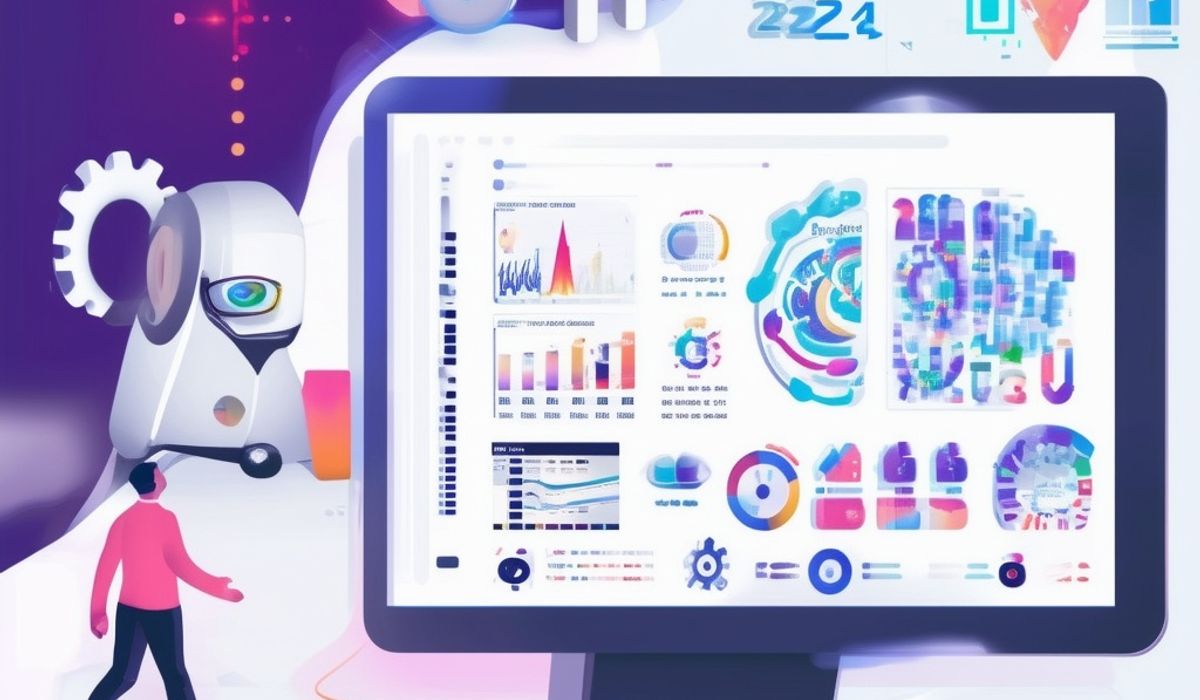
Beyond the core areas of productivity, marketing, customer service, and data analytics, AI tools are making their mark in various specialized business functions, offering innovative solutions to streamline processes and drive efficiency.
Gong – AI-powered revenue intelligence platform
How Gong’s AI analyzes sales conversations for insights and coaching:
Automated transcription and analysis of sales calls and meetings.
Identification of winning sales strategies and best practices.
Personalized coaching and training recommendations for sales teams.
Integration with popular CRM and collaboration tools for seamless workflows.
Real-time insights and analytics for data-driven decision-making.
Textio – AI writing assistant for inclusive and effective job descriptions
Using Textio to optimize job postings and attract diverse talent:
AI-powered writing assistance for creating inclusive and effective job descriptions.
Real-time feedback on language and tone to improve job posting quality.
Predictive analytics for identifying high-performing job descriptions.
Integration with popular applicant tracking systems for seamless workflows.
Reporting and analytics for monitoring hiring success and job posting performance.
Persado – AI-generated marketing language for better engagement
Leveraging Persado’s AI to craft high-converting ad copy and emails:
AI-generated language for ad copy, subject lines, and email content.
Personalized messaging based on customer data and behavior.
Predictive analytics for identifying high-performing language and messaging.
Integration with popular marketing automation and CRM platforms.
Real-time optimization and testing for continuous improvement.
By leveraging these innovative AI tools, businesses can gain valuable insights, optimize processes, and drive better outcomes in specific functional areas, ultimately contributing to overall business success.
Implementing AI Tools in Your Business

As AI technology continues to evolve, businesses that embrace these innovative tools will undoubtedly gain a competitive edge. However, implementing AI tools in your organization requires careful consideration and planning.
Considerations for choosing the right AI tools for your needs
Identify your business goals and pain points that AI tools can address.
Evaluate the features and capabilities of different AI tools based on your requirements.
Consider factors such as ease of use, integration with existing systems, and scalability.
Assess the data requirements and quality for effective AI tool implementation.
Ensure the AI tools align with your organization’s ethical principles and values.
Best practices for integrating AI into your workflows
Start with a pilot project to test and evaluate the AI tool’s performance.
Provide training and resources for employees to understand and use the AI tools effectively.
Establish clear guidelines and protocols for AI tool usage and data governance.
Foster a culture of innovation and openness to new technologies within your organization.
Continuously monitor and refine the AI implementation process based on feedback and results.
Measuring the ROI and success of AI tool adoption
Define clear metrics and Key Performance Indicators (KPIs) to measure the impact of AI tools.
Track metrics such as productivity gains, cost savings, customer satisfaction, and revenue growth.
Conduct regular reviews and data analysis to evaluate the AI tools’ performance.
Gather feedback from employees and customers to identify areas for improvement.
Continuously optimize and refine the AI tool implementation based on the insights gained.
By following these best practices, businesses can successfully integrate AI tools into their operations, driving efficiency, innovation, and ultimately, business growth.
The Future of AI in Business

The integration of AI in business is still in its early stages, and the potential for further advancements is vast. As AI technology continues to evolve, businesses can expect to see exciting developments and opportunities.
Emerging trends and predictions for AI in business
Increased adoption of AI-powered automation and process optimization across various industries.
Integration of AI and Internet of Things (IoT) devices for enhanced operational efficiency and predictive maintenance.
Advancements in natural language processing, enabling more human-like conversational AI assistants.
Deployment of AI in edge computing and 5G networks for real-time data processing and decision-making.
Adoption of explainable AI (XAI) models to improve transparency and trust in AI-based decisions.
Potential impact of AI on various industries and job roles
Automation of routine tasks, leading to increased productivity and efficiency.
Augmentation of human capabilities with AI-powered tools and insights.
Emergence of new job roles focused on AI development, implementation, and management.
Transformation of customer experiences through personalized and intelligent interactions.
Disruption of traditional business models and the creation of new AI-driven opportunities.
Importance of staying ahead of the curve with AI adoption
As AI technology continues to advance, businesses that embrace and adopt these innovative tools early will gain a significant competitive advantage. By staying ahead of the curve, organizations can:
Optimize their processes and operations for maximum efficiency and cost savings.
Enhance customer experiences and drive customer loyalty through personalized interactions.
Gain valuable insights and make data-driven decisions for strategic planning and growth.
Foster a culture of innovation and attract top talent interested in working with cutting-edge technologies.
Future-proof their operations and adapt to changing market dynamics and customer demands.
Businesses that fail to embrace AI risk falling behind their competitors and missing out on the numerous benefits and opportunities that this transformative technology offers.
Conclusion: Embracing AI for Business Growth and Competitiveness
In the rapidly evolving business landscape, the adoption of AI tools is no longer an option but a necessity for organizations seeking to stay ahead of the curve. From streamlining workflows and enhancing customer experiences to driving data-driven decision-making and fostering innovation, AI offers a myriad of benefits that can propel businesses toward growth and success.
This ultimate guide has explored a comprehensive range of AI tools, spanning productivity, marketing, sales, customer service, data analytics, and various specialized business functions. By leveraging these powerful tools, businesses can unlock new levels of efficiency, personalization, and insights, enabling them to adapt quickly to changing market dynamics and customer demands.
As the future of AI in business continues to unfold, staying ahead of the curve with AI adoption will be crucial. Businesses that embrace these innovative technologies early will gain a significant competitive advantage, positioning themselves as industry leaders and paving the way for long-term success.
Embark on your AI journey today. Explore the AI tools that align with your business goals, develop a strategic implementation plan, and foster a culture of innovation within your organization. By harnessing the power of AI, you can unlock new opportunities, drive growth, and ensure your business remains competitive in the years to come.
Frequently Asked Questions
How can I ensure my data is secure when using AI tools?
Reputable AI tool providers prioritize data security and privacy. Look for tools that use secure data encryption, have robust access controls, and comply with relevant data protection regulations like GDPR and CCPA. Additionally, establish clear data governance policies within your organization.
Will AI tools replace human workers in my business?
AI tools are designed to augment and enhance human capabilities, not replace them entirely. While some routine tasks may be automated, AI tools can free up employees to focus on more strategic and creative endeavors, ultimately increasing productivity and job satisfaction.
How much training is required for my team to use AI tools effectively?
The training requirements vary depending on the specific AI tool and the complexity of its features. Most AI tool providers offer comprehensive training resources, including tutorials, documentation, and support. Additionally, allocating time and resources for hands-on training and knowledge-sharing within your team can facilitate a smoother adoption process.
How can I measure the return on investment (ROI) of AI tools in my business?
Measuring ROI involves tracking key metrics relevant to your business goals, such as productivity gains, cost savings, customer satisfaction, and revenue growth. Establish clear KPIs and regularly review the data to assess the impact of AI tool implementation. Continuously optimize and refine your AI strategy based on these insights.
How do I ensure my AI tools are unbiased and ethical?
Bias and ethical concerns are valid considerations when implementing AI tools. Look for providers that prioritize ethical AI development, including testing for bias, transparency, and explainability. Additionally, establish clear guidelines and governance processes within your organization to ensure responsible and ethical AI usage.



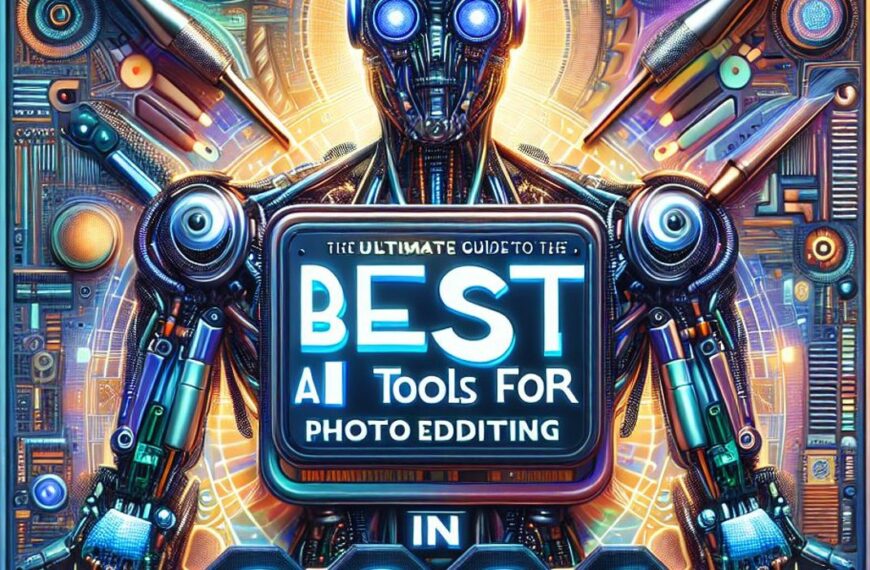
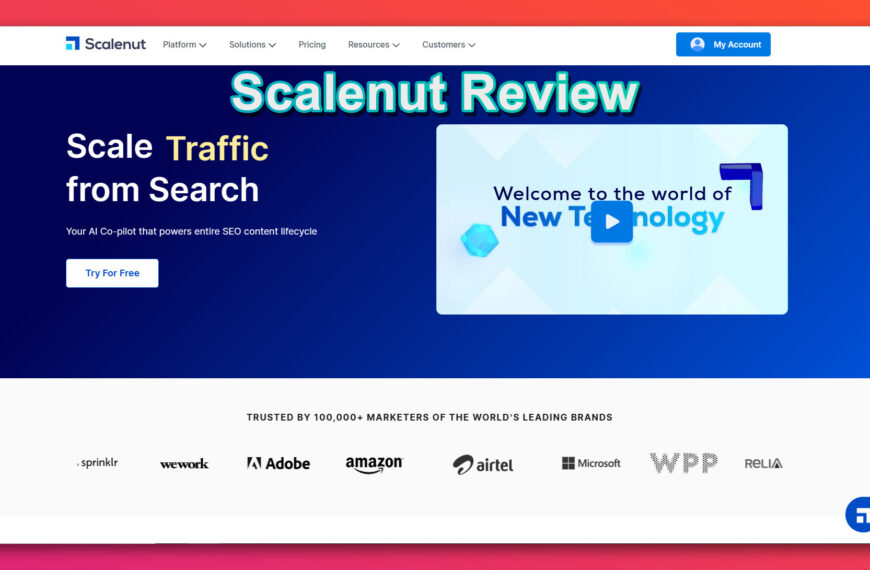


Leave a Reply